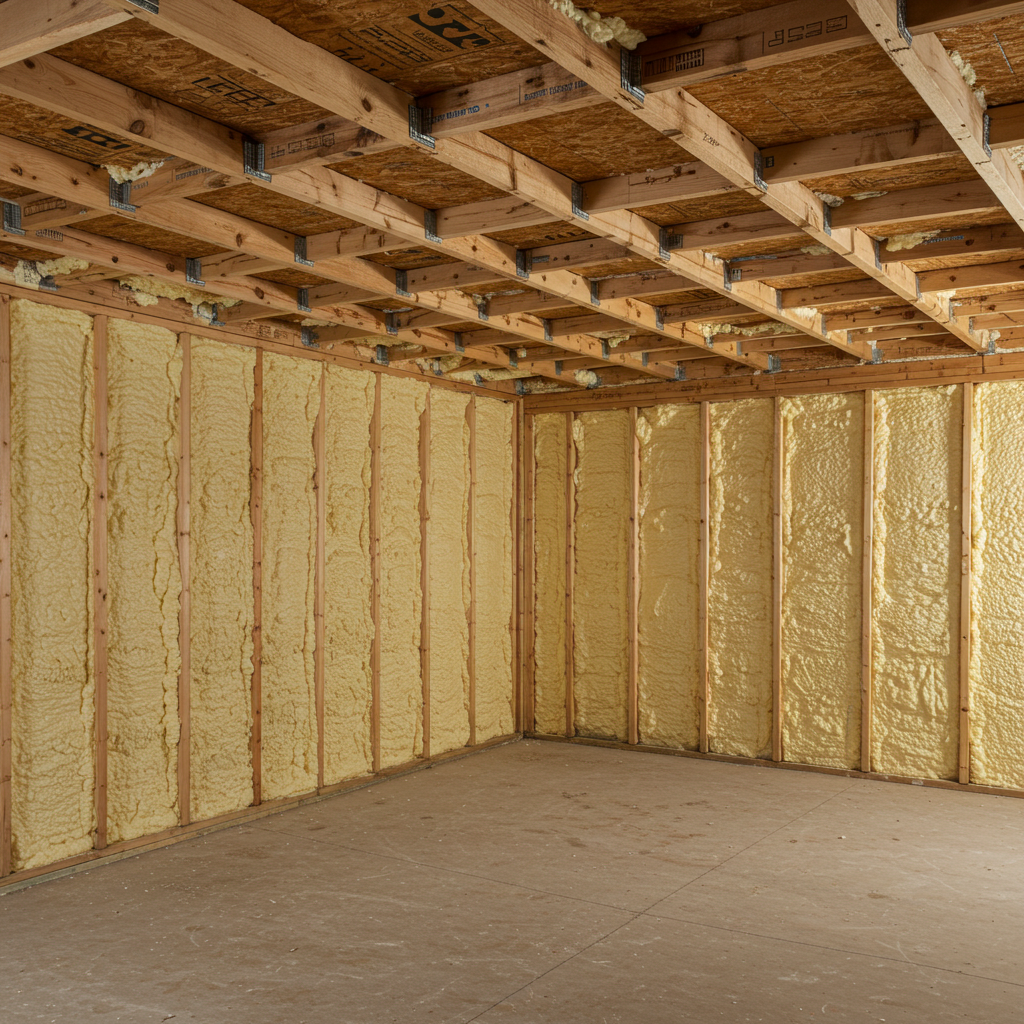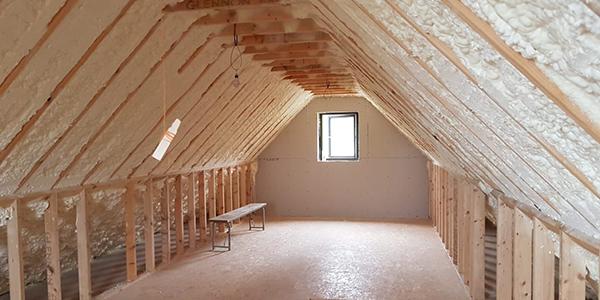Year-round comfort in Las Vegas homes requires proper insulation that handles extreme temperature swings from scorching summers exceeding 110°F to surprisingly cool winter nights. Professional insulation experts create thermal barriers that reduce energy consumption by 20-40% while maintaining consistent indoor temperatures throughout the year. Advanced home insulation systems work by blocking heat transfer, preventing hot outdoor air from infiltrating your living space during summer and retaining warm air during winter months.
The key to achieving optimal comfort lies in selecting the right insulation type and ensuring proper installation by experienced residential insulation professionals. Quality insulation creates an effective building envelope that reduces HVAC workload, eliminates drafts, and provides superior moisture control essential for Las Vegas’s arid climate.
Essential Insulation Types for Las Vegas Climate
Las Vegas homes benefit from multiple insulation approaches depending on the specific area and application requirements. Each type offers unique advantages for different sections of your property.
Spray Foam Solutions
Closed cell spray foam insulation provides the highest R-value per inch and creates an impermeable air barrier. This solution excels in extreme temperature conditions and offers superior moisture resistance. Open cell spray foam insulation costs less while providing excellent sound dampening and air sealing properties for interior applications.
Traditional Insulation Options
Fiberglass and cellulose insulation remain popular choices for attic insulation and wall insulation projects. These materials offer cost-effective thermal protection when properly installed with adequate vapor barriers.
Bonus Tip: Combine spray foam air sealing with traditional insulation for maximum efficiency. Seal gaps and cracks with spray foam, then add bulk insulation for optimal thermal performance.
| Insulation Type | R-Value per Inch | Air Sealing | Moisture Resistance | Best Application |
| Closed Cell Spray Foam | 6.0-7.0 | Excellent | Superior | Exterior walls, roofing |
| Open Cell Spray Foam | 3.5-4.0 | Excellent | Good | Interior walls, attic |
| Fiberglass Batts | 3.1-3.4 | Poor | Fair | Standard wall cavities |
| Blown Cellulose | 3.2-3.8 | Good | Fair | Attic spaces |
| Rigid Foam Board | 4.0-6.5 | Good | Excellent | Foundation, exterior |
Comprehensive Insulation Applications
Professional insulation specialists handle various applications to create complete thermal protection throughout your property.
Residential Applications
Attic insulation prevents heat gain during summer months when roof temperatures exceed 150°F. Wall insulation creates thermal barriers in exterior walls and interior partition walls. Foundation insulation prevents ground moisture intrusion and temperature transfer through concrete slabs and basement walls.
Commercial Solutions
Commercial spray foam insulation addresses large-scale building envelope challenges in warehouses, office buildings, and retail spaces. These applications require specialized equipment and expertise to ensure proper coverage and performance.
Bonus Tip: Schedule insulation work during mild weather months (October through March) in Las Vegas for optimal installation conditions and worker comfort.
Technical Specifications and Performance Data
Understanding insulation performance metrics helps you make informed decisions about your thermal protection needs.
| Performance Metric | Measurement | Optimal Range Las Vegas | Impact on Comfort |
| R-Value (Thermal Resistance) | hr·ft²·°F/BTU | R-30 to R-49 attic | Temperature stability |
| Air Changes per Hour | ACH | Below 3.0 | Draft elimination |
| Vapor Permeance | Perms | 0.1-1.0 exterior walls | Moisture control |
| Thermal Bridging | Percentage | Less than 15% | Energy efficiency |
| Sound Transmission Class | STC Rating | 45-55 | Noise reduction |
Climate-Specific Requirements
Las Vegas’s desert climate demands insulation systems that handle extreme heat, low humidity, and significant temperature fluctuations. Effective systems must prevent thermal bridging while allowing controlled moisture management.
Things to Consider Before Making a Decision
Several factors influence insulation selection and installation success. Evaluate these elements before proceeding with your project.
Building Assessment
Examine your current insulation levels, air leakage patterns, and existing moisture issues. Professional energy audits identify specific problem areas and quantify potential improvements. Check for structural issues, electrical modifications needed, and accessibility challenges.
Performance Priorities
Determine whether energy savings, comfort improvement, or noise reduction ranks highest for your situation. Consider long-term performance versus initial investment costs. Evaluate maintenance requirements and expected lifespan for different insulation materials.
Installation Timing
Plan installations around weather conditions, occupancy schedules, and other home improvement projects. Coordinate with HVAC modifications, electrical work, and structural repairs that might affect insulation performance.
Bonus Tip: Document existing conditions with photos before insulation work begins. This creates a baseline for future maintenance and helps identify any installation issues.
Quality Installation Standards
Proper installation determines insulation effectiveness regardless of material quality. Professional installation ensures optimal performance and longevity.
Installation Best Practices
Experienced teams follow manufacturer specifications for thickness, coverage, and curing times. They use appropriate personal protective equipment and maintain controlled environmental conditions during application. Quality work includes thorough surface preparation, gap sealing, and proper vapor barrier installation.
Roofing Insulation Considerations
Roofing insulation requires specialized techniques to handle extreme heat exposure and thermal expansion. Professional specialists understand roof deck preparation, ventilation requirements, and moisture management specific to Las Vegas conditions.
Common Questions About Insulation Performance
How long does quality insulation last in Las Vegas heat?
Properly installed insulation maintains performance for 20-30 years with minimal degradation. Spray foam solutions often exceed this timeframe while maintaining their thermal and air sealing properties.
What insulation works best for existing homes?
Blown-in insulation and spray foam applications work well for retrofitting existing structures. These methods fill gaps and irregular spaces that traditional batts cannot address effectively.
How much energy savings can I expect?
Energy savings typically range from 20-40% depending on existing insulation levels and home efficiency. Homes with minimal existing insulation see the greatest improvements.
Does insulation help with Las Vegas dust infiltration?
Quality air sealing combined with proper insulation significantly reduces dust infiltration by eliminating air leaks that carry particles into living spaces.
Ready to Achieve Optimal Year-Round Comfort
Effective insulation transforms Las Vegas homes into comfortable, energy-efficient spaces that maintain consistent temperatures regardless of extreme outdoor conditions. Professional installation ensures maximum performance from your investment while addressing the unique challenges of desert climate living.
Take action now to improve your home’s comfort and efficiency. Contact Supreme Spray Foam LV for expert insulation solutions tailored to Las Vegas conditions. Our experienced team provides comprehensive assessments and professional installation of:
- Attic Insulation
- Spray Foam Repairs
- Wall Insulation
- Commercial Spray Foam Insulation
\• Exterior Insulation
- Foundation Insulation
- Residential Spray Foam Insulation
- Roofing Insulation
- Closed Cell Spray Foam Insulation
- Open Cell Spray Foam Insulation
Supreme Spray Foam LV
Phone: (702) 904-9895
Email: [email protected]
Frequently Asked Questions
Q: What R-value do I need for Las Vegas attics?
A: Las Vegas attics require R-30 to R-49 depending on your specific cooling and heating needs. Higher R-values provide better temperature control during extreme summer heat.
Q: Can I install insulation myself or do I need professionals?
A: While some insulation types allow DIY installation, professional installation ensures proper air sealing, vapor barriers, and safety compliance. Complex applications like spray foam require specialized equipment and training.
Q: How does insulation affect my HVAC system performance?
A: Proper insulation reduces HVAC workload by maintaining consistent indoor temperatures. This extends equipment life and improves efficiency, but may require system adjustments for optimal operation.
Q: What signs indicate I need better insulation?
A: High energy bills, uneven room temperatures, excessive dust, and ice dams (rare in Las Vegas) indicate insulation problems. Professional energy audits identify specific deficiencies.
Q: How soon will I see energy savings after insulation installation?
A: Energy savings appear immediately in your next utility bill, with maximum benefits visible within the first full heating and cooling season after installation.
Reviewer
Michael Carter reviewed this article using insight gained over 12 years in the spray foam business. His feedback focused on helping contractors reach new customers without overcomplicating their message…











